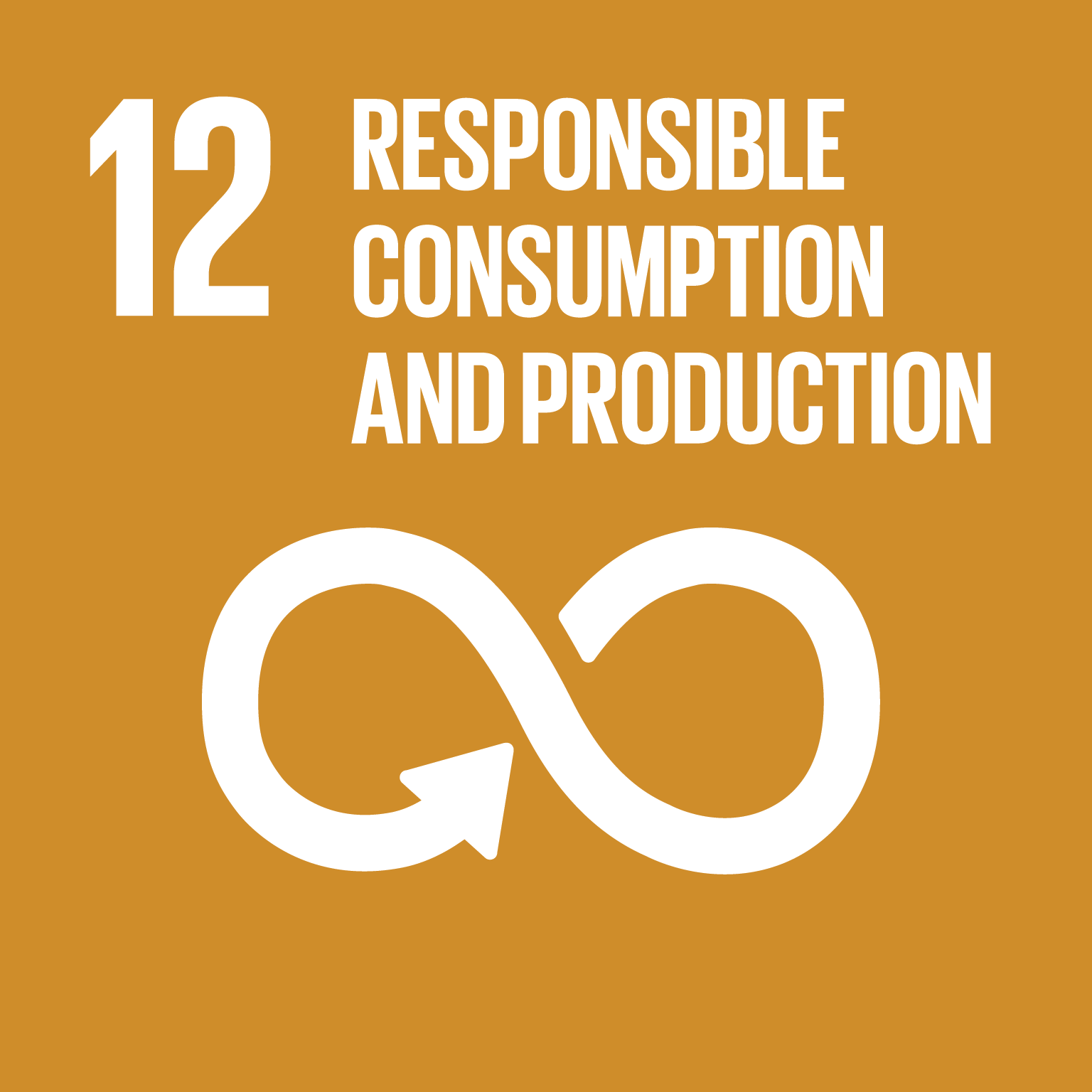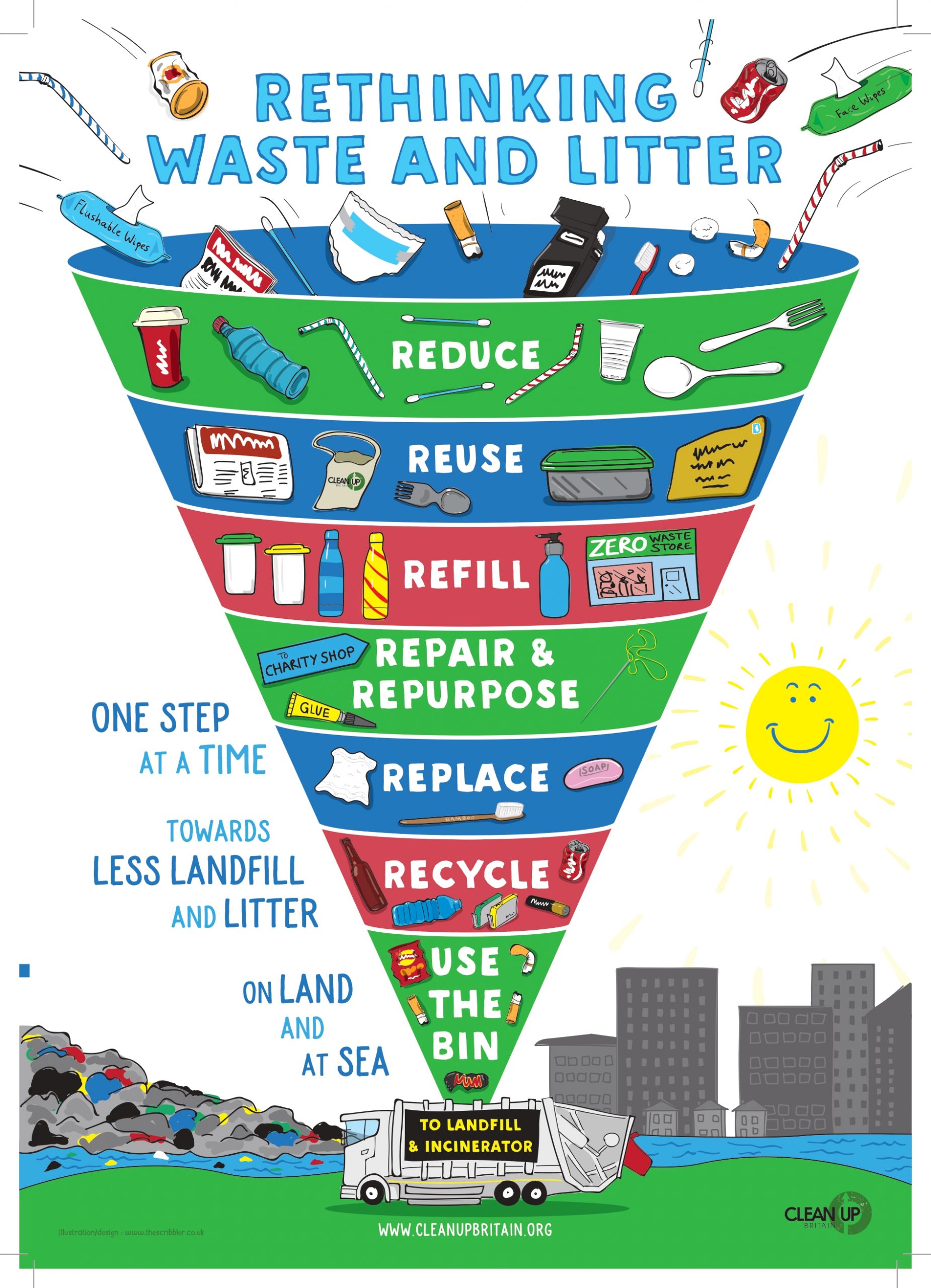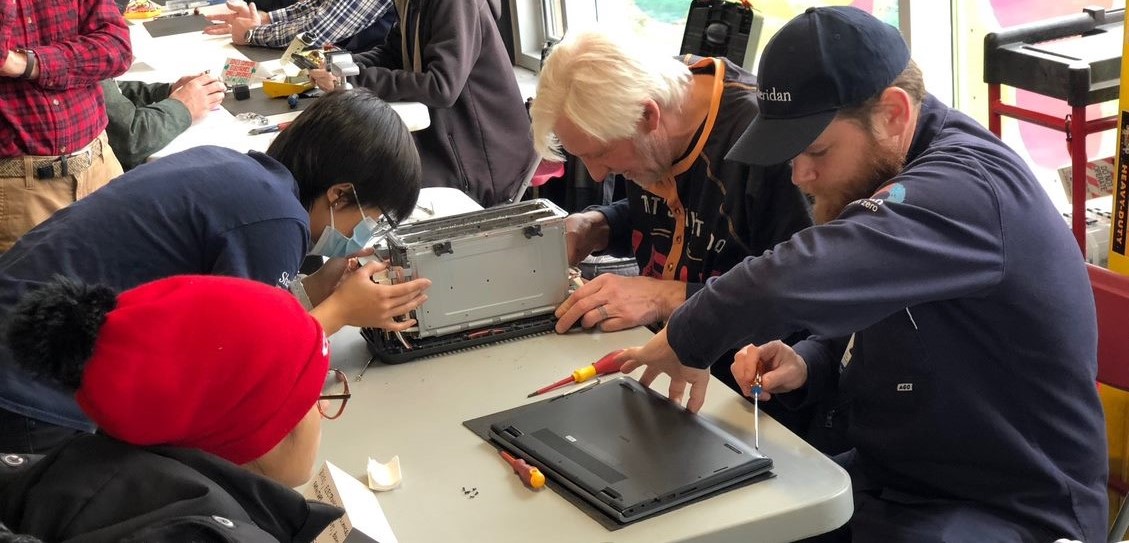Sheridan Repair Café


Toss it away? No way!
If you have a broken household item and don’t know what to do with it, instead of throwing it out, consider bringing it to Sheridan’s next Repair Café event, where we will show you how much fun repairing things can be and how often the repair is easy to make!
What is a Repair Café?
Started in Amsterdam in 2009, Repair Café is a global initiative that aims to reduce the volume of waste sent to landfills, and to change society’s “throw-away” mindset. Since its launch, the global Repair Café network has grown to more than 2500 local cafés around the world (see http://repaircafe.org/en). In 2014, Sheridan launched its Repair Café and has since hosted 25+ Repair Café events either virtually, on one of our campuses in Brampton, Mississauga, and Oakville, or in partnership with Community organizations.
During Sheridan’s Repair Café events, anyone can come and get help fixing their broken household items and most importantly, learn from expert volunteer “fixers” about how to repair items themselves.
Fixers start making the repairs together with the visitor, showing them the step-by-step process to repair the item. Once the repair is made/the consultation is over, visitors are required to fill out an exit survey form before leaving to provide Sheridan with feedback about their experience at the Repair Café event.
Anyone is welcome to join the event, even if they do not have a broken item in need of repair, to learn from the fixers and/or lend a hand with someone else’s repair job.
Our guiding principles include:
- Promote a culture of repair and reduce needless waste sent to landfills.
- Offer a free meeting space where community members can come together and repair goods.
- Provide an opportunity for visitors to learn from experts on how to do their own repairs.
- Collaborate with community organizations and members of the community interested in furthering sustainability and fueling the initiative.
What is the cost of getting items fixed?
None, repair services and consultations at Sheridan Repair Café events are free of charge!
Who are the Sheridan Repair Café “Fixers” and who can apply to volunteer as a Fixer?
A Fixer is a volunteer who is skilled at repairing household items, such as bikes, books, clothes, computers, electronics, small appliances, small furniture, jewelry, toys, watches, etc. Anyone experienced in doing repairs can volunteer as a Fixer! Your repair skills in fixing household items are all welcome! If you enjoy repairing things and helping others learn how; we invite you to fill in our online Fixer Form to express interest in volunteering in future Sheridan Repair Café events.
Questions about the Sheridan Repair Café initiative? Email us at MissionZero@SheridanCollege.ca.
Why Repair?
Waste generation rates globally are on the rise (World Bank Group, 2022). In 2019, Canada was the largest producer of annual waste per capita and had an estimated 36.1 metric tons of waste generation in total (Statista, 2022). To significantly reduce the amount of waste that is generated and sent to landfills, prior to using the trash or recycling bins, other steps, such as refusing, reducing, reusing, repairing and repurposing can be taken (RRWA, 2020).
Repairs can increase product lifespans and decrease waste generation (OECD, 2021). For the circular economy model to work, both repair and reuse are essential. Compared to the manufacturing of new products from virgin materials, recycling, and/or disposing of products to landfill, extending the useful life of products through repair and reuse often requires less energy and fewer resources, reduces waste generation and therefore lessens the burden on our planet (Foxway, 2022).
Today, goods are often not kept for as long as they were in the past due to the production of products that will fail or seem less desirable over time, encouraging “throw-away and buy something new” culture (University of Colorado Boulder, 2021). In rich countries, a vast majority of items which are in good condition and could be repaired are instead thrown away to landfill and replaced (BBC Future, 2012).







Follow Us!